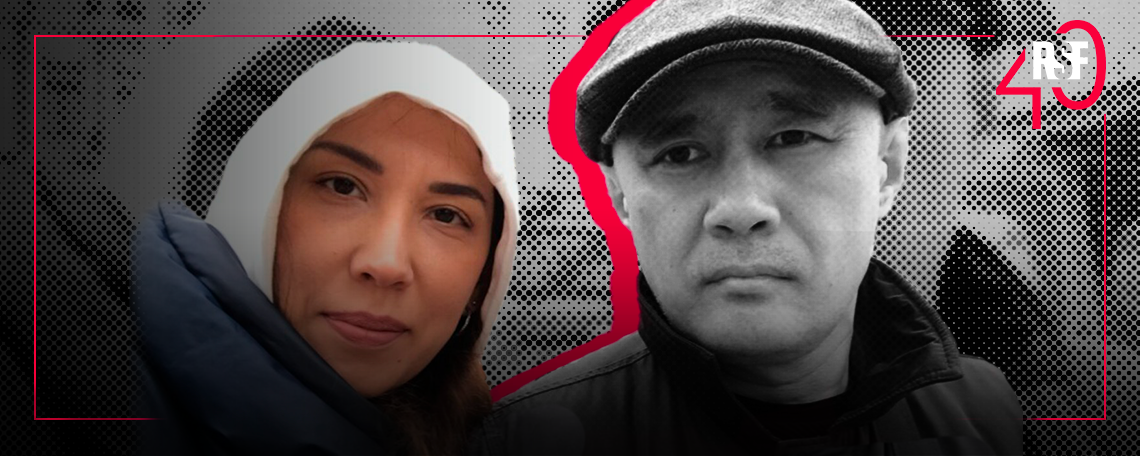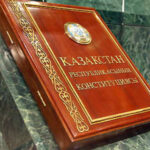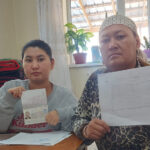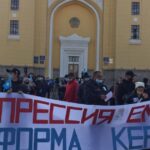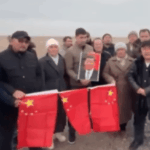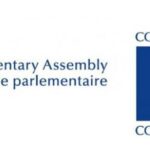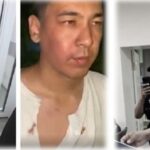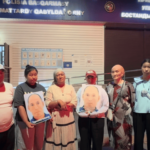The name of Kazakhstani journalist and opposition politician Aidos Sadykov has been immortalised on the memorial to fallen journalists in Bayeux, northern France. It is Europe’s first monument to journalists who died for freedom of speech. It was unveiled in October 2006 on the initiative of the international organisation Reporters Without Borders.
Last year’s assassination of Aidos Sadykov in Kyiv (Ukraine) has renewed scrutiny of Kazakhstan’s adherence to international obligations, drawing attention from international bodies that have criticized the lack of transparency and cooperation between Kazakh and Ukrainian authorities.
On June 18, 2024, the Kazakhstani opposition figure and political refugee Aidos Sadykov was the victim of a violent attack outside his home in Kyiv. After spending thirteen days in intensive care, he passed away from his injuries on July 2.
His wife, Natalya Sadykova, later recounted the events to Le Monde:
“We were driving through the courtyard of our apartment building when I saw a man in a dark cap, glasses, and beard pointing a pistol with a silencer at us,” she said. “I shouted, ‘Aidos, get down!’ But just then, a bullet shattered the driver’s side window and hit him.”
Identification of suspects
Not long after the incident, Ukrainian authorities identified two foreign nationals, aged 33 and 36, as suspects in the shooting.
“The suspects have been placed on the international wanted list, and measures are currently being taken to apprehend them. The men face life imprisonment for committing a particularly serious crime,” reported the Ukrainian Prosecutor General’s Office.
On June 22, 2024, Kazakhstan’s Prosecutor General’s Office announced that one of the suspects, Altai Zhakambayev, had voluntarily turned himself in to the Interior Ministry of the Republic of Kazakhstan. He was briefly detained on suspicion of involvement in the murder but was later released under a travel ban.
No further Cooperation
Despite continuing promises by Kazakh authorities, more than a year later, they have still neither investigated nor extradited the two suspects.
According to Respublika, Natalya Sadykova stated that Kazakh prosecutors have refused to interrogate either Altai Zhakambayev or the second suspect, Meiram Karataev, and have not initiated investigative cooperation with Ukraine.
Although former presidential spokesperson Berik Uali claimed in 2024 that President Kassym-Jomart Tokayev had instructed law enforcement agencies “to locate the suspects and take the necessary measures,” and that Kazakhstan was “ready to cooperate with Ukrainian law enforcement agencies,” Kazakh authorities have not provided any updates or results to the public since then.
Criticism and International Concerns
Human rights advocates and international observers argue that the lack of progress and absence of cooperation between the two countries raise serious questions about Kazakhstan’s commitment to its international legal obligations – particularly regarding accountability, the protection of journalists, and the rule of law.
PACE and several NGOs have urged Kazakh authorities to ensure an impartial investigation and to cooperate fully with Ukrainian counterparts. Failure to do so, they warn, may further erode public trust and undermine Kazakhstan’s international credibility.
An outspoken critique
Sadykov, who led the YouTube channel БӘСЕ, was known for his outspoken criticism of the government in Kazakhstan. His wife has continued his work, maintaining the channel’s coverage of political developments.
A paragraph of the YouTube channel’s official bio reads:
“KNB [National Security Committee] officers Meyram Karataev and Altai Zhakambayev are in Kazakhstan, and the regime refuses to extradite them to Ukraine. Tokayev was so afraid of БӘСЕ’s revelations that he killed an opposition politician and journalist on foreign soil.”
While these claims have not been independently verified, the ongoing lack of transparency continues to fuel speculation and deepen concerns about the safety of political dissidents abroad.
Need for a transparent investigation
The unresolved killing of Aidos Sadykov highlights the fragility of protections for dissidents and political activists, as well as Kazakhstan’s inconsistent implementation of its international commitments.
Until a transparent and credible investigation is carried out, questions will persist about the state’s willingness and capacity to ensure accountability in politically sensitive cases.

